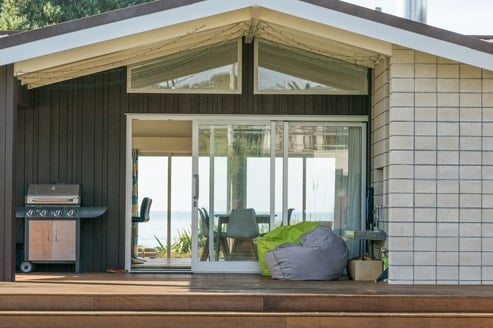If you’re considering purchasing property in Costa Rica, you may come across the terms “titled” and “concession” property. Here’s what you need to know about the differences between these types of property and the pros and cons of each.
Titled Property
Titled property is land that has a registered title deed in the National Registry of Costa Rica. When you purchase titled property, you become the owner of the land and have the right to use and develop it as you see fit. Some benefits of owning titled property in Costa Rica include:
- Security: Titled property is considered to be more secure than concession property, as it is owned outright and cannot be taken away by the government.
- Flexibility: As the owner of titled property, you have more flexibility in how you use and develop the land, subject to local zoning and building regulations.
- Investment: Titled property is often considered to be a better investment, as it can appreciate in value over time.
However, there are also some potential drawbacks to owning titled property in Costa Rica:
- Cost: Titled property is often more expensive than concession property, as it is in higher demand.
- Responsibility: As the owner of titled property, you are responsible for maintaining it and paying property taxes.
- Paperwork: The process of transferring titled property can be complicated and time-consuming, requiring the services of a lawyer and notary.
Concession Property
Concession property is land that is owned by the government but can be leased for a set period of time, typically 20 to 25 years, with the possibility of renewal. Concession property is often found in beachfront areas or other desirable locations, and is popular with developers and investors. Some benefits of owning concession property in Costa Rica include:
- Lower Cost: Concession property is often less expensive than titled property, making it more accessible to buyers on a budget.
- Development Opportunities: Concession property can be developed and used for commercial purposes, such as building hotels or vacation rentals.
- Ease of Transfer: Transferring concession property is generally easier and less expensive than transferring titled property.
However, there are also some potential drawbacks to owning concession property in Costa Rica:
- Uncertainty: Concession property leases typically expire after 20 to 25 years, and there is no guarantee that they will be renewed.
- Restrictions: Concession property may be subject to restrictions on use and development, depending on the terms of the lease.
- Risk: There is a risk that the government could change the terms of the lease or decide not to renew it, which could affect the value and usefulness of the property.
Final Thoughts
Deciding whether to purchase titled or concession property in Costa Rica depends on your specific needs and circumstances. Titled property offers more security and flexibility, but can be more expensive and requires more responsibility. Concession property is more affordable and offers development opportunities, but comes with more uncertainty and restrictions. It’s important to work with a reputable real estate agent and lawyer to help you make the right decision for your situation.
Flamingo Beach Realty is your go-to for information on relocating and finding the perfect home in Costa Rica. With combined experience of over 30 years, you can rely on us to make your transition to Costa Rica seamless. Get in touch here to learn more.
The Pros & Cons of Buying Property in Costa Rica: Everything You Need to Know
Costa Rica is a beautiful country with a stable democracy, friendly people, and a tropical climate that attracts many people from around the world. If you’re considering buying property in Costa Rica, there are several options to consider, including condos, townhomes, single-family homes, land, and businesses. Here are some of the pros and cons of each option to help you make an informed decision.
Condos
Pros:
- Lower maintenance: Condo associations typically handle the maintenance of the building, including exterior upkeep and landscaping.
- Amenities: Many condo buildings offer amenities like a pool, gym, and security.
- Affordability: Condos can be more affordable than single-family homes or townhomes.
Cons:
- Less privacy: You will be sharing walls with your neighbors, which means less privacy than you would have in a single-family home.
- HOA fees: Condo associations charge fees to cover maintenance and amenities, which can be an added expense.
Townhomes
Pros:
- More space: Townhomes are typically larger than condos, with more living space and outdoor areas.
- Privacy: Townhomes typically have separate entrances and no shared walls.
- Shared amenities: Some townhome communities offer shared amenities like a pool or gym.
Cons:
- Maintenance: Townhome owners are responsible for the maintenance of their own property, including landscaping and exterior upkeep.
- HOA fees: Like condos, townhomes often come with HOA fees to cover community maintenance and amenities.
Single-Family Homes
Pros:
- Privacy: Single-family homes offer the most privacy and independence of any option.
- Customization: You have more freedom to customize and make changes to a single-family home than you would with a condo or townhome.
- Appreciation: Single-family homes can appreciate in value over time, making them a good investment.
Cons:
- Maintenance: Homeowners are responsible for all maintenance and upkeep of their property, including landscaping and exterior upkeep.
- Cost: Single-family homes are often the most expensive option, both to purchase and to maintain.
Land
Pros:
- Customization: Buying land gives you the opportunity to build your dream home exactly as you want it.
- Investment: Buying land can be a good investment if the value of the land increases over time.
- Privacy: Owning land can offer the most privacy and independence of any option.
Cons:
- Cost: Buying land can be expensive, especially in desirable areas.
- Development costs: Building on land can be expensive, and there may be additional costs like connecting to utilities and installing infrastructure.
Businesses
Pros:
- Income potential: Buying a business can provide a source of income, especially if it’s already established.
- Investment: If the business is successful, it can be a good investment.
Cons:
- Risk: Buying a business is a risk, as there is no guarantee of success.
- Responsibility: Owning a business can be a lot of work and require a lot of time and effort.
Buying property in Costa Rica is a major investment and requires careful consideration. Each option comes with its own set of pros and cons, so it’s important to weigh them carefully before making a decision. Consider factors like cost, maintenance, privacy, and amenities to help you decide which option is best for you.
Flamingo Beach Realty is your go-to for information on relocating and finding the perfect home in Costa Rica. With combined experience of over 30 years, you can rely on us to make your transition to Costa Rica seamless. Get in touch here to learn more.




